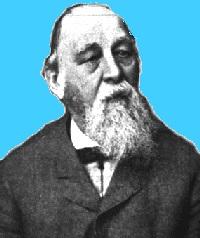1821 - 1897 Composer of "ST. FRANCES" in Services for Congregational Worship. The New Hymn and Tune Book Born: April 1821, Warwick, Warwickshire, England (source: 1881 census).
Died: August 1897, Leicester, Leicestershire, England.
Buried: Welford Road Cemetery, Leicester, England.
Löhr was a chorister at Magdalen College, Oxford, and went on to attend the Universities of Leipzig & Munich. He worked for a while as assistant to Zachariah Buck at Norwich Cathedral, then moved to Leicester in 1845, to play the organ at St. Margaret’s church, a position he held for four decades. He also taught music, organized music festivals, and, in 1856, founded the Leicester Amateur Harmonic Society. As of 1881, he was a professor of music in Leicester.
Music: ST. FRANCES
http://www.hymntime.com/tch/bio/l/o/h/lohr_ga.htm
=================
http://en.wikipedia.org/wiki/George_Augustus_L%C3%B6hr
George Augustus Löhr


